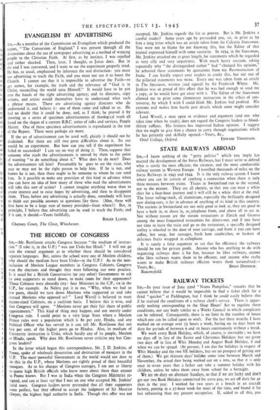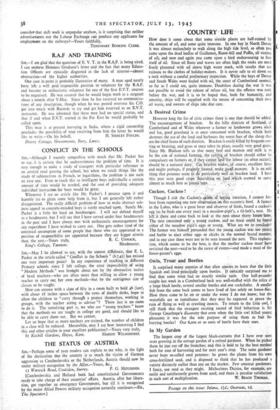RAILWAY TICKETS
Sta,—In your issue of June 22nd " Numa Pompilius," remarks that he cannot believe that it would be impossible to find a ticket clerk for a third " quicker" at Paddington, but I think he could easily believe this if he realised the conditions of a railway clerk's service. There is appar- ently nothing corresponding to the Shop Hours' Act to regulate these conditions, nor any body similar to a Works Council to which complaints can be referred. Consequently, there is no limit to the number of hours which one can be called upon to work. For the last three months I have worked on an average over 53 hours a week, having on 19 days been on duty for periods of between 9 and to hours continuously without a break.
We work every Bank Holiday, which, of course, is inevitable ; we have no days off in lieu of the Easter and Christmas Holidays but are given two days off in lieu of Whit Monday and August Bank Holiday, if and when we can be spargd. (At present, I am due for holidays in respect of Whit Monday and the two VE holidays, but see no prospect of getting any of them.) We get thirteen days' holiday some time between March and November, the actual date being worked out on a rota, so that it is only once in seven years that a father can take a summer holiday with his children, unless he takes them away from school for a fortnight.
We arc on .duty on alternate Sundays, so that if we are lucky and don't get our two Bank Holidays committed for extra pay, we are off duty for gr days in the year. I worked for two years at a bench in an aircraft factory, putting in a 57-hour week for most of the time, and found it far less exhausting than my present occupation. If, added to all this, you
consider that shift work is unpopular anyhow, is it surprising that neither advertisements nor the Labour Exchange can produce any applicants for employment on the railways?—Yours faithfully,
TEMPORARY BOOKING CLERK.



























 Previous page
Previous page